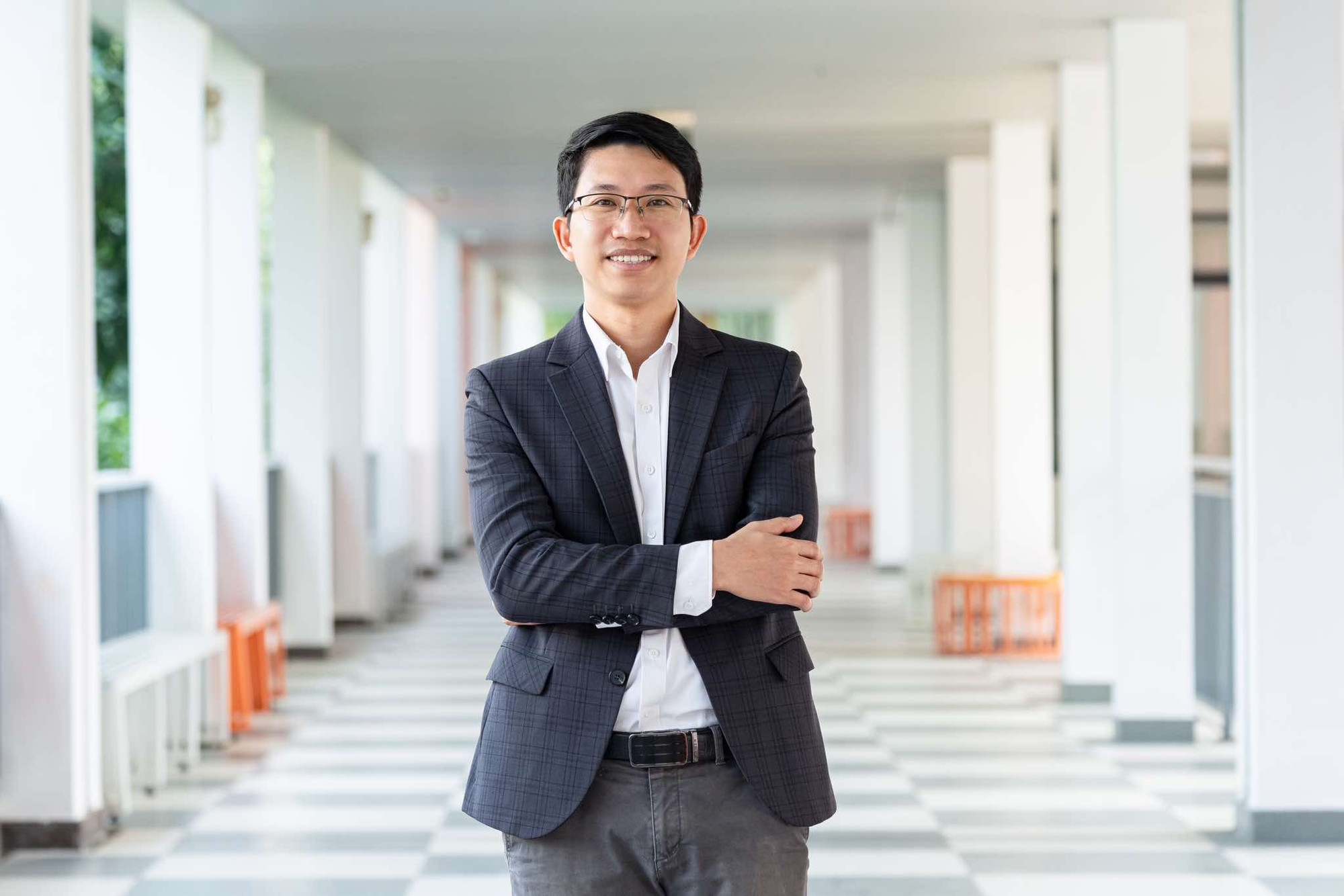
Dr. Nguyen Viet Huong (born in 1990), Deputy Head of the Faculty of Materials Science and Engineering, Phenikaa University, is one of the 10 faces of "Outstanding Young Vietnamese Faces of 2024". Photo: NVCC
2 times won the title of "valedictorian" to international patent
Dr. Nguyen Viet Huong (born in 1990), from Can Loc - Ha Tinh , is currently Deputy Head of Faculty, Faculty of Materials Science and Engineering, Phenikaa University.
From 2020 to 2024, Dr. Nguyen Viet Huong was a lecturer at the Faculty of Materials Science and Engineering, actively participating in undergraduate and postgraduate training, scientific research and innovation activities. From June 2024, she was appointed Deputy Head of the Faculty, during her work at Phenikaa University.
Dr. Nguyen Viet Huong has achieved a number of admirable achievements such as: Second Prize in Analysis of the National Student Math Olympiad; Top scorer in the University Entrance Exam - University of Technology, VNU Hanoi (29/30 points); Top scorer in the Engineering and Master's Research Training Program of the Lyon National Institute of Applied Sciences (INSA de Lyon, France); Golden Globe Science and Technology Award 2024; Creative Youth Badge.
In the past 4 years, Dr. Nguyen Viet Huong has been leading the following projects: 1 ministerial-level scientific research project (NAFOSTED fund); participating in a ministerial-level scientific research project (NAFOSTED fund); Leading the 1 international scientific research project funded by UNESCO; Leading the 1 grassroots-level research project.
Dr. Nguyen Viet Huong has published 43 scientific articles, of which in the period 2020 - 2024, he has published more than 30 scientific works in prestigious international journals ranked Q1, 1 international patent. Many of which have IF index > 10. As of March 2025, the number of citations of the total number of published scientific works is 1562, H-index: 22 (according to Google scholar).
In particular, Dr. Nguyen Viet Huong is the leader of the team that designed, built and successfully developed SALD technology - Atmospheric Pressure Monolayer Deposition Technology. This is one of the new technologies that allows the fabrication of nanomaterials with control down to each atomic monolayer, opening up many new opportunities in scientific research and innovation activities.
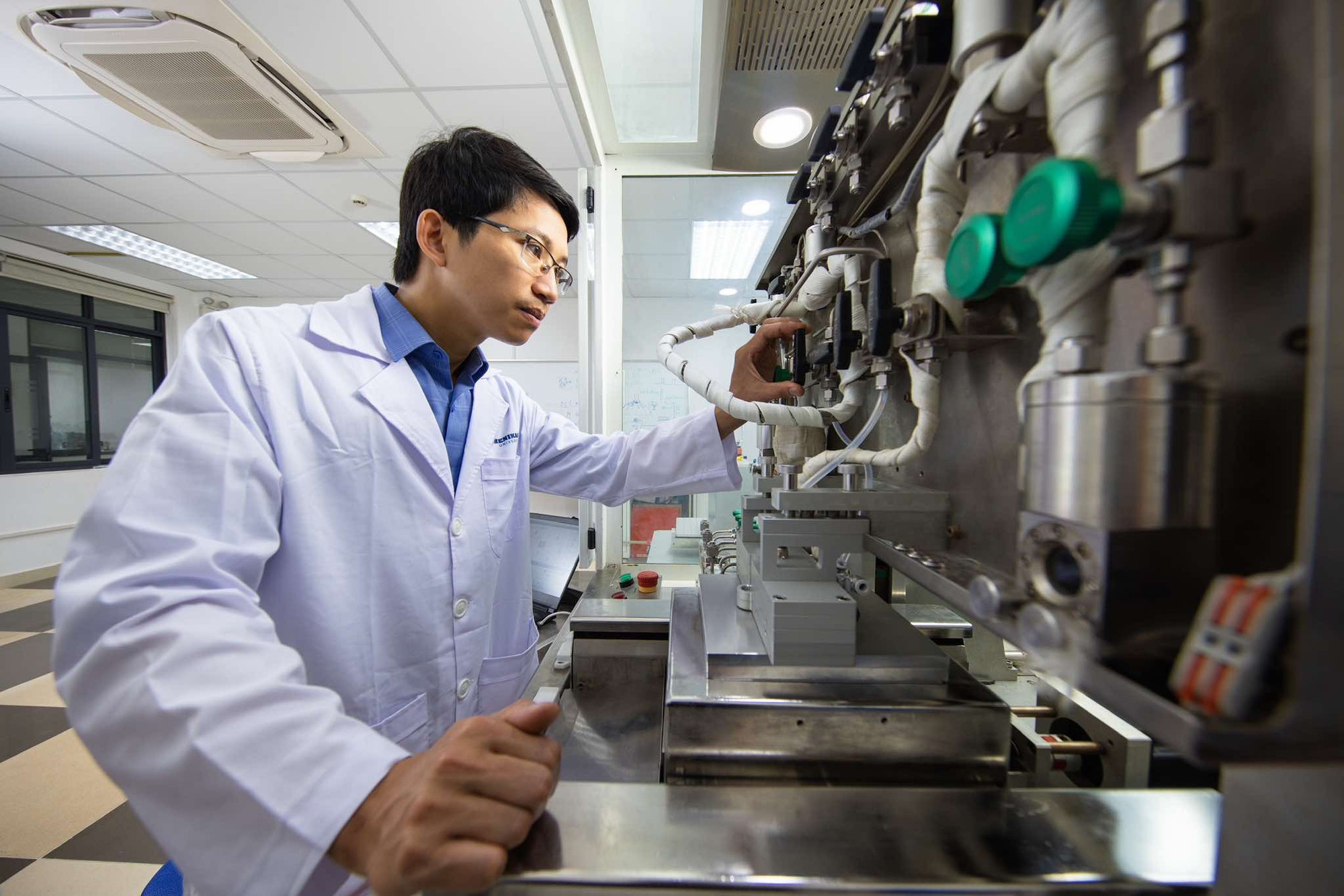
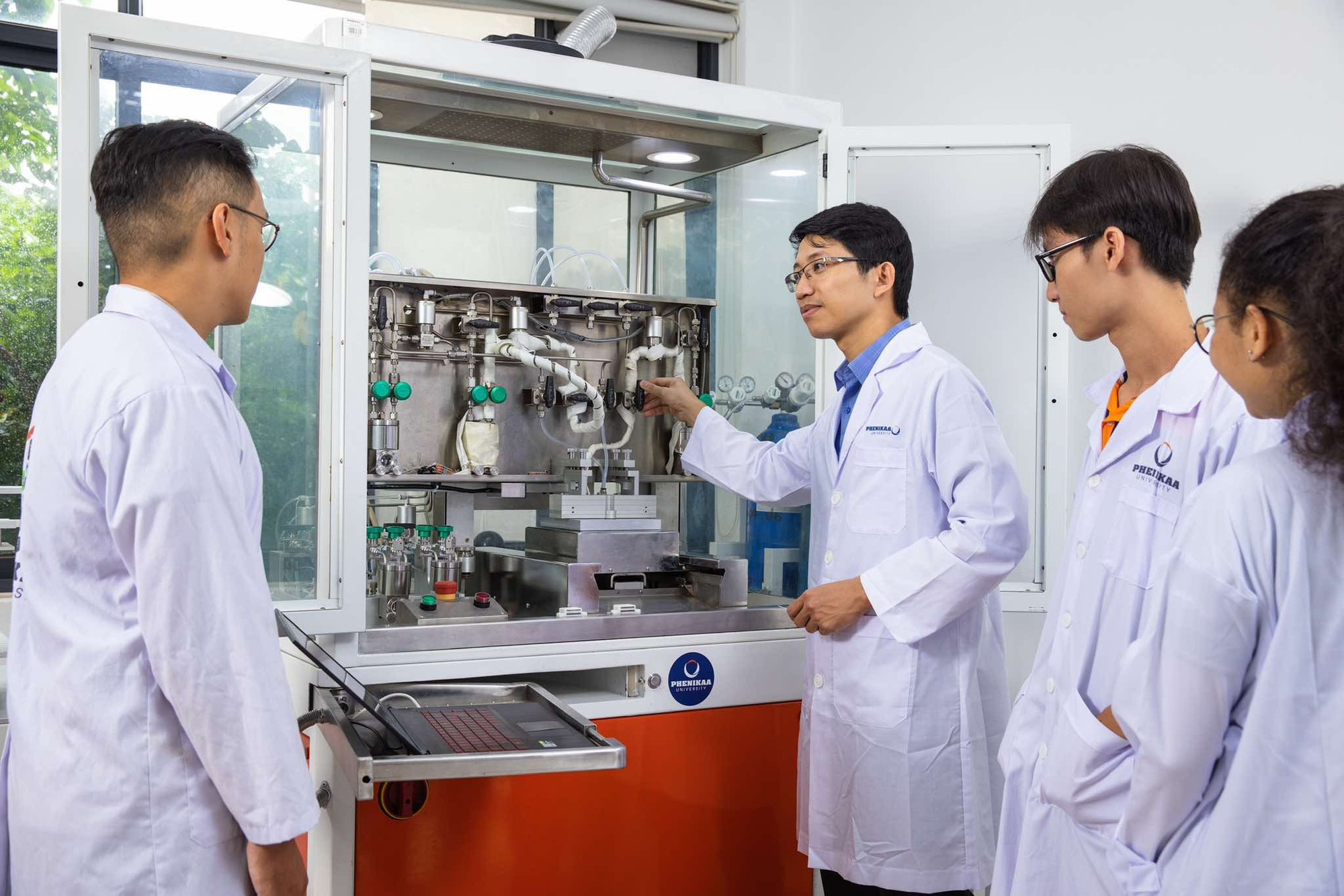
By building the SALD system themselves, Dr. Nguyen Viet Huong's research team has mastered one of the most advanced nanofabrication technologies today. Photo: NVCC
Wish to study well to return to Vietnam to work
Born and raised in Can Loc, Ha Tinh - a rural area with many difficulties, the conditions for studying and accessing advanced scientific fields of Dr. Nguyen Viet Huong cannot be compared to his friends in big cities. However, the first turning point came when he passed the entrance exam to the specialized Mathematics class of Vinh University High School for the Gifted. It was here that his passion for natural sciences was gradually nurtured.
Dr. Nguyen Viet Huong confided: “When I entered the research path, I realized that mathematics is not just dry numbers, but also the foundation for developing logical thinking, helping me to approach physics, chemistry, programming and simulation more deeply. All of these are closely related to materials science - the field that I will pursue later. Therefore, I decided to register for the entrance exam to the Faculty of Engineering Physics and Nanotechnology at the University of Technology (Vietnam National University, Hanoi).
After only 6 months of studying, a great opportunity came when he received a scholarship from Project 322 - a program of the Vietnamese Government to send students abroad for training using the State budget. He was selected to go to France to study engineering at the National Institute of Applied Sciences of Lyon (INSA de Lyon).
The 9-year journey of pursuing knowledge in France began from there. It was a long and challenging journey, but it also opened up valuable opportunities, helping Dr. Huong accumulate knowledge and become more mature on the path of scientific research.
Normally, after defending their doctoral dissertations, researchers will continue to do postdocs to gain more experience and expand their international collaboration network. Dr. Huong also thought that he would follow that path - do a postdoc for a few years and then return home. But in 2018, a meeting with Vietnamese colleagues changed his mind.
"Although science has no borders, I understand that my efforts will be more meaningful when put in the right place. When I started studying abroad in France, I always had a wish that I would study well, research well and learn new technologies abroad and return to Vietnam to work. In Vietnam, we know that science and technology are not as good as those in developed countries. However, to change it, we must be in its heart to change it" - Dr. Huong confided.
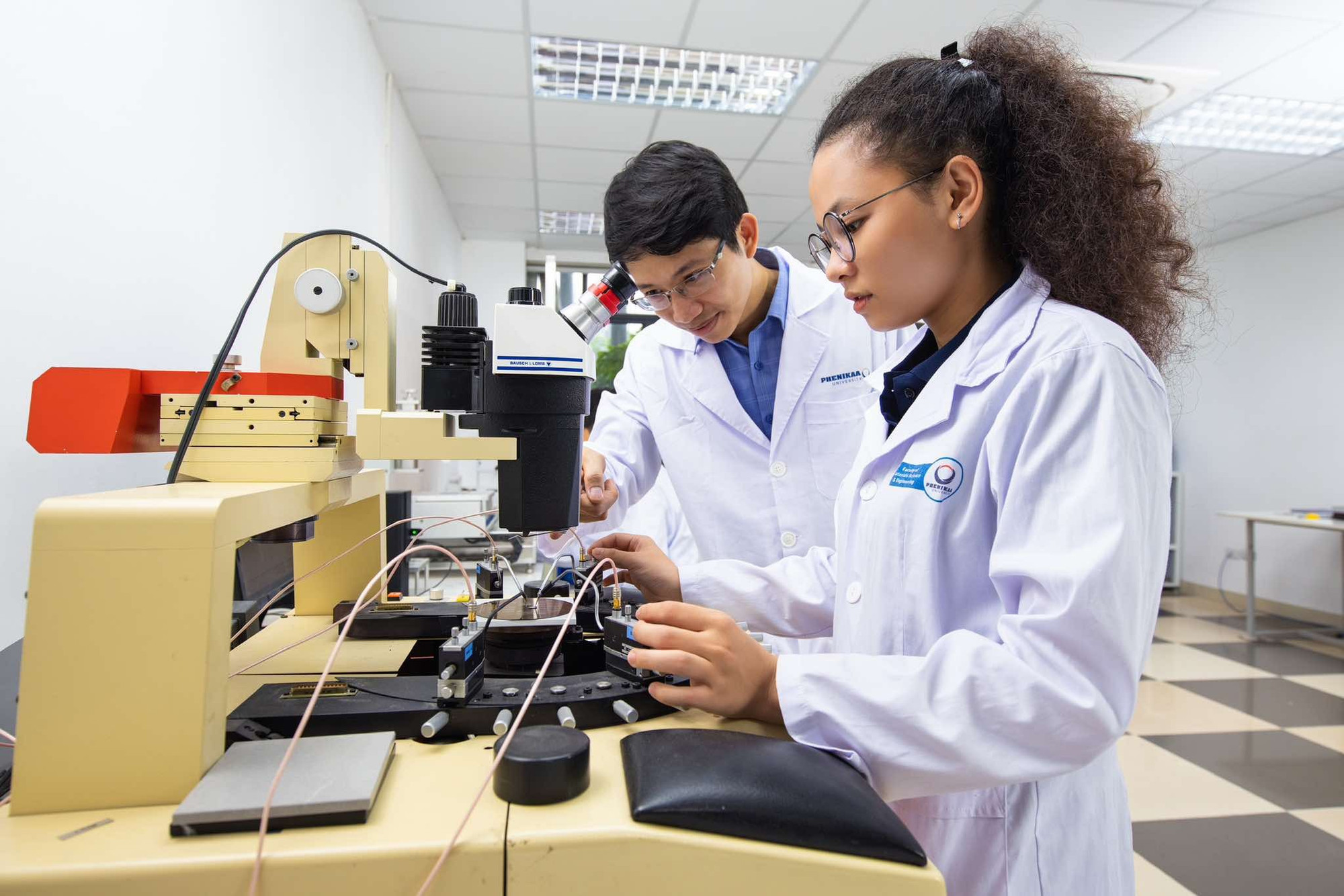
Dr. Nguyen Viet Huong: "With advantages in technological autonomy, research and cooperation, ALD technology will quickly find a place in practice, bringing economic value." Photo: NVCC
Atmospheric Pressure Monolayer Deposition (SALD) technology was researched and developed for the first time in Vietnam.
In 2019, Dr. Nguyen Viet Huong joined Phenikaa University. He was assigned by the school's leadership to lead a project to design and manufacture a SALD system - atmospheric pressure atomic monolayer deposition.
Dr. Nguyen Viet Huong shared: "By building the SALD system ourselves, we have mastered one of the most advanced nano-fabrication technologies today. Not only does it operate stably, this system is also improved compared to what I used to do in France. After many years of operating the system in France, I realized some limitations, and when I returned home, the design was optimized when I received advice from colleagues to overcome those shortcomings.
Now, students, trainees, and researchers can directly operate the system. This brings great value: instead of just operating on available equipment, they can actually do science, experience, experiment, and even have the right to make mistakes to learn and develop. If there is a problem, we can fix it in a short time, from a day to a week, because we know every detail of the system."
It is known that after the implementation process, the SALD technology laboratory was established and put into operation in February 2022. The new equipment system is more improved than previous systems in other laboratories, with high precision and stability. This is also a high-tech equipment system in the field of nano-thin film fabrication, allowing the fabrication of ALD thin films at atmospheric pressure, researched and manufactured for the first time in Vietnam.
Currently, Dr. Nguyen Viet Huong's research group is cooperating with research groups in other specialized fields to put this technology into practical application as soon as possible.
"Hopefully in the next 5 years, our story will not only stop at the laboratory, but also be about practical applications of this thin film technology in life" - Dr. Huong expressed.
In the coming time, Dr. Nguyen Viet Huong's research group aims to apply nano-coating to protect organic materials from the effects of strong radiation, prolong product life, applications in renewable energy, or manufacture smart optoelectronic components...
“We believe that, with the advantages of technological autonomy, research and cooperation, ALD technology will quickly find a place in practice, bringing economic value,” Dr. Huong emphasized.
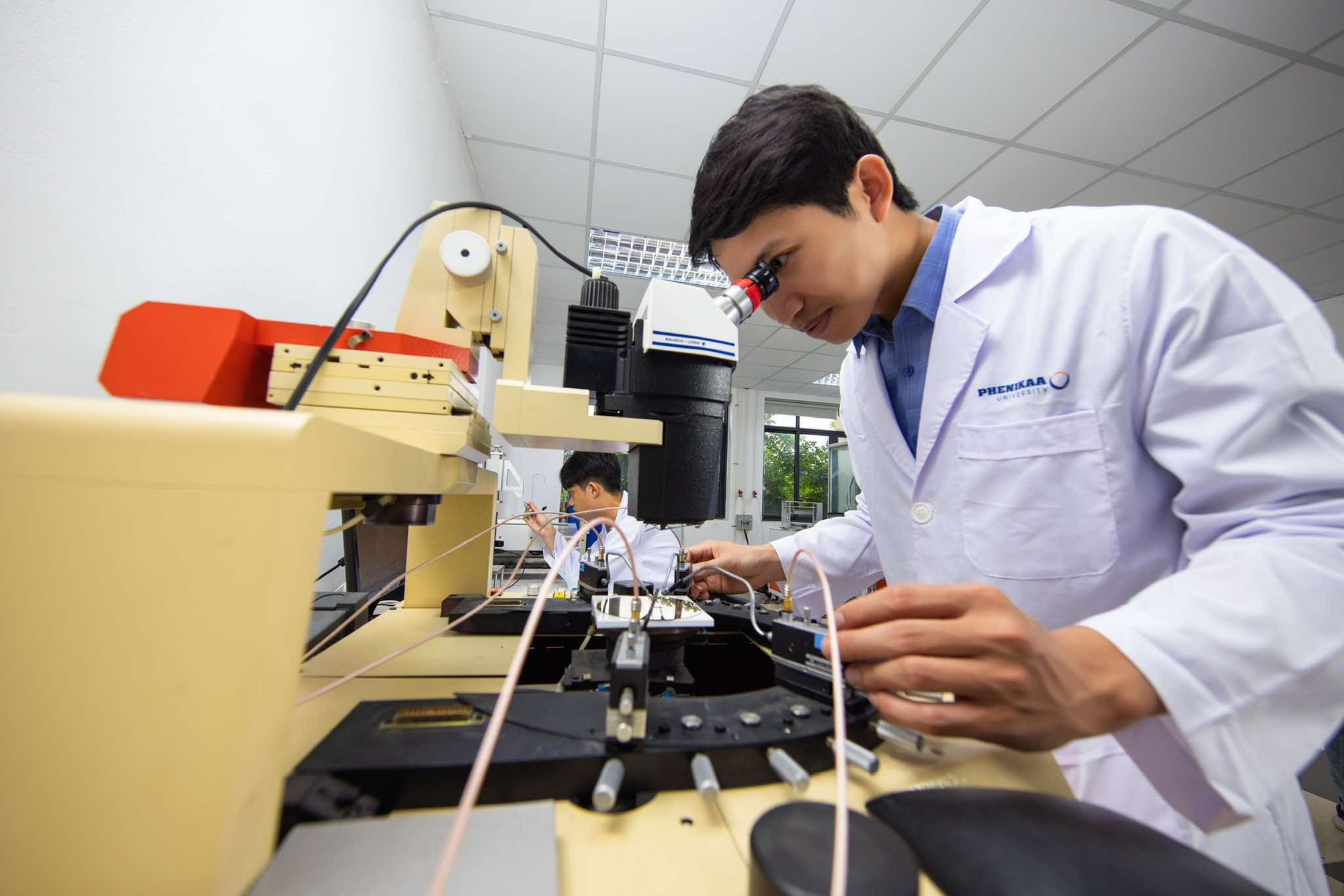
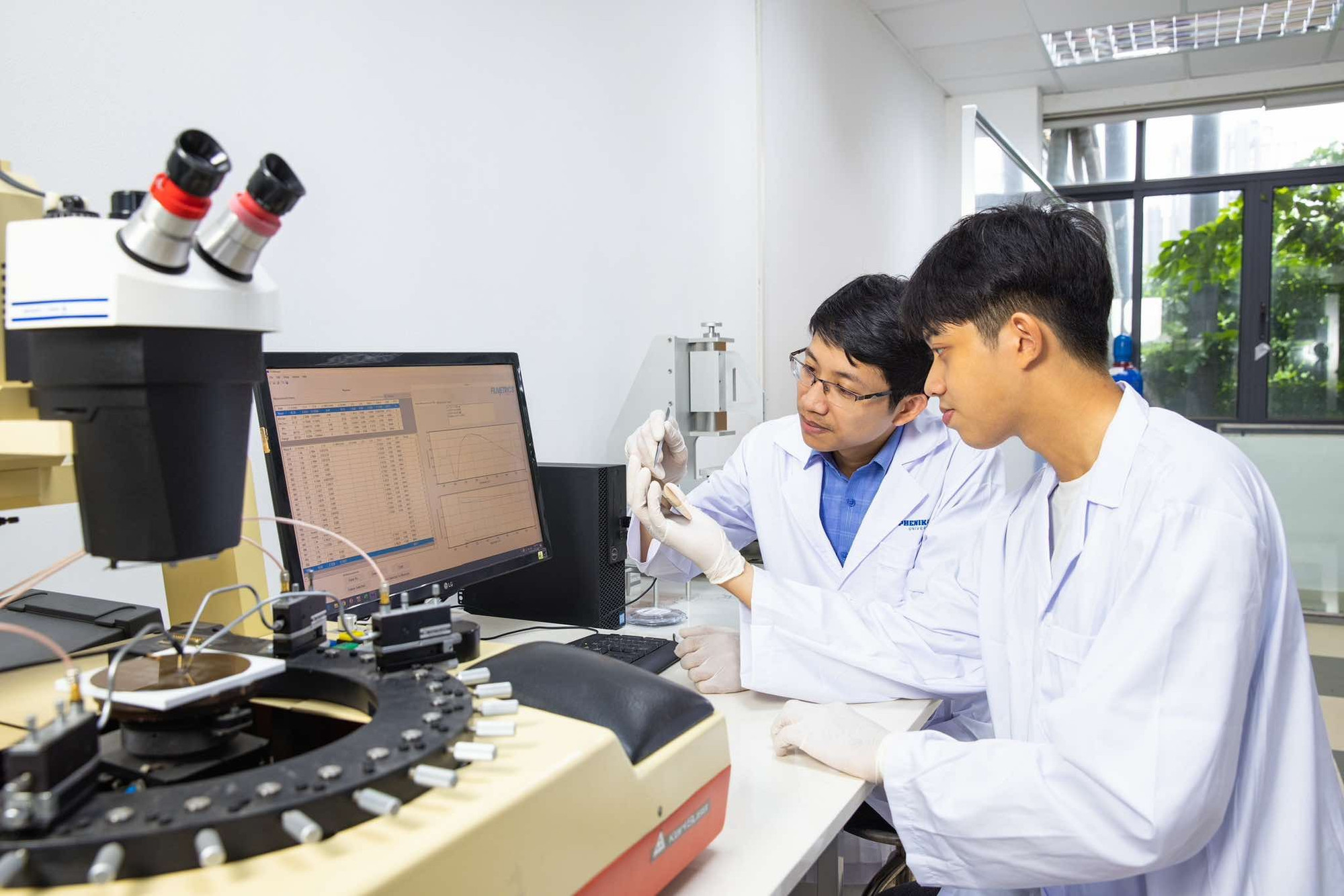
Dr. Nguyen Viet Huong always promotes and spreads passion for scientific research and he hopes that young people who love natural sciences will boldly pursue this path. Photo: NVCC
The push from Resolution 57 will create a generation of young, courageous scientists.
As a researcher and lecturer in charge of training, Dr. Nguyen Viet Huong always wishes to promote the development of high-quality human resources in the fields of science and technology, especially basic science.
Dr. Nguyen Viet Huong always promotes and spreads passion for scientific research and he hopes that young people who love natural sciences will boldly pursue this path.
“Currently, the treatment of scientists in Vietnam has improved significantly. In some domestic research and training institutions, working conditions and income are not inferior to those abroad. In particular, with the push from Resolution 57, Vietnam is entering a period of strong investment in science and technology. I believe that a generation of young scientists full of courage and creativity will soon create important breakthroughs in the near future,” Dr. Huong affirmed.
Dr. Nguyen Viet Huong: "With the appeal of Resolution 57, with the love for the Fatherland that exists in every Vietnamese person, we are very determined and very hopeful to apply technologies and ideas to breakthrough development in key areas of the country."




![[Photo] General Secretary To Lam attends the 80th anniversary of Vietnam's diplomacy](https://vstatic.vietnam.vn/vietnam/resource/IMAGE/2025/8/25/3dc715efdbf74937b6fe8072bac5cb30)




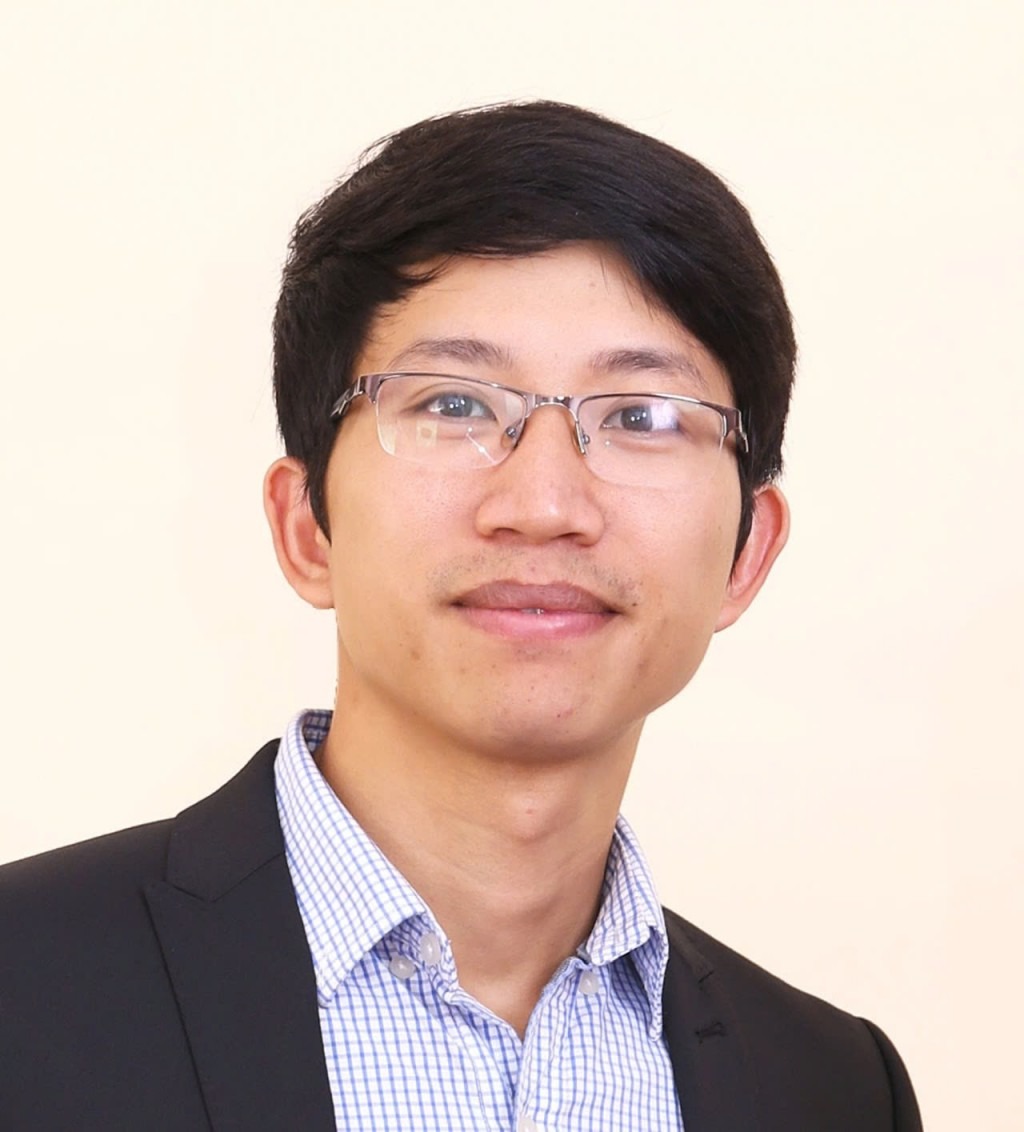

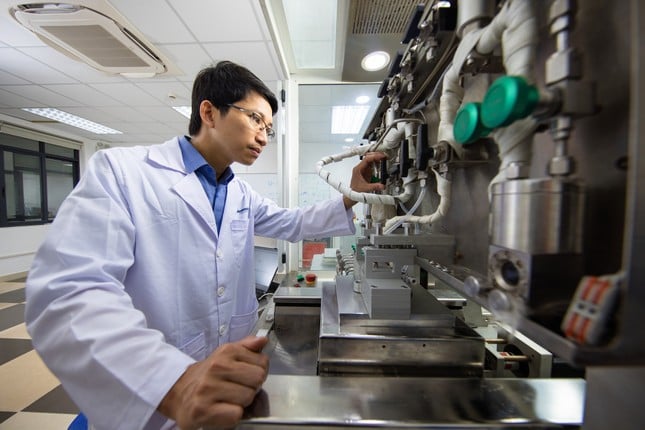

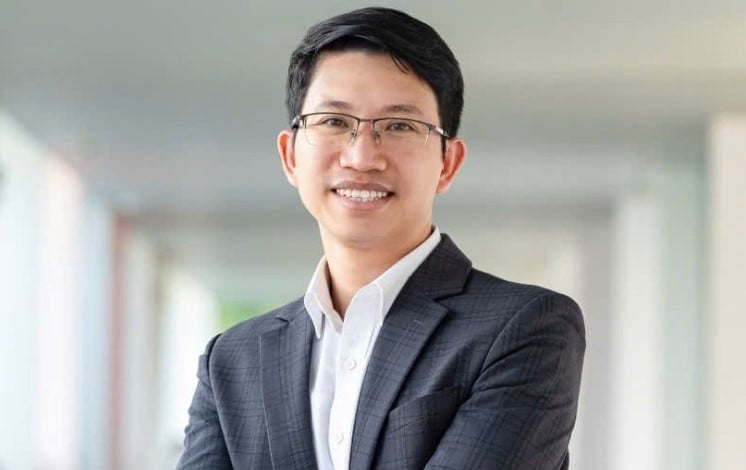

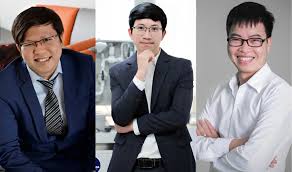
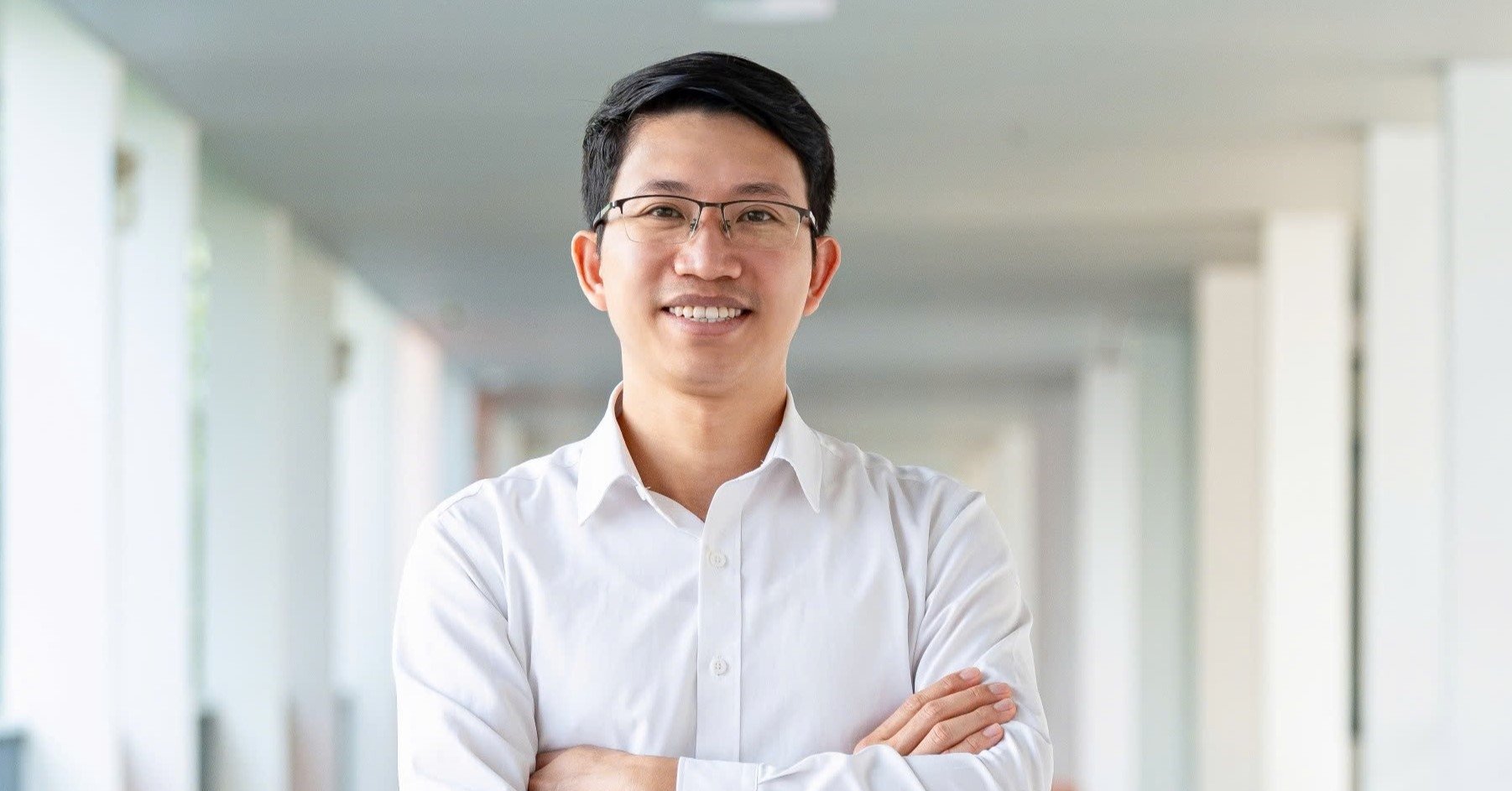

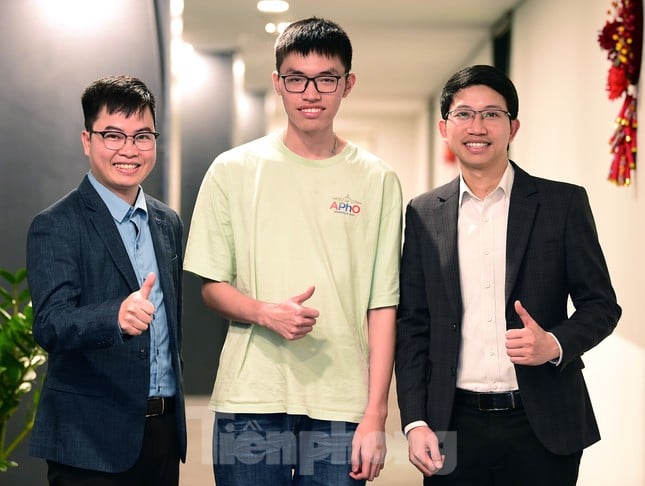








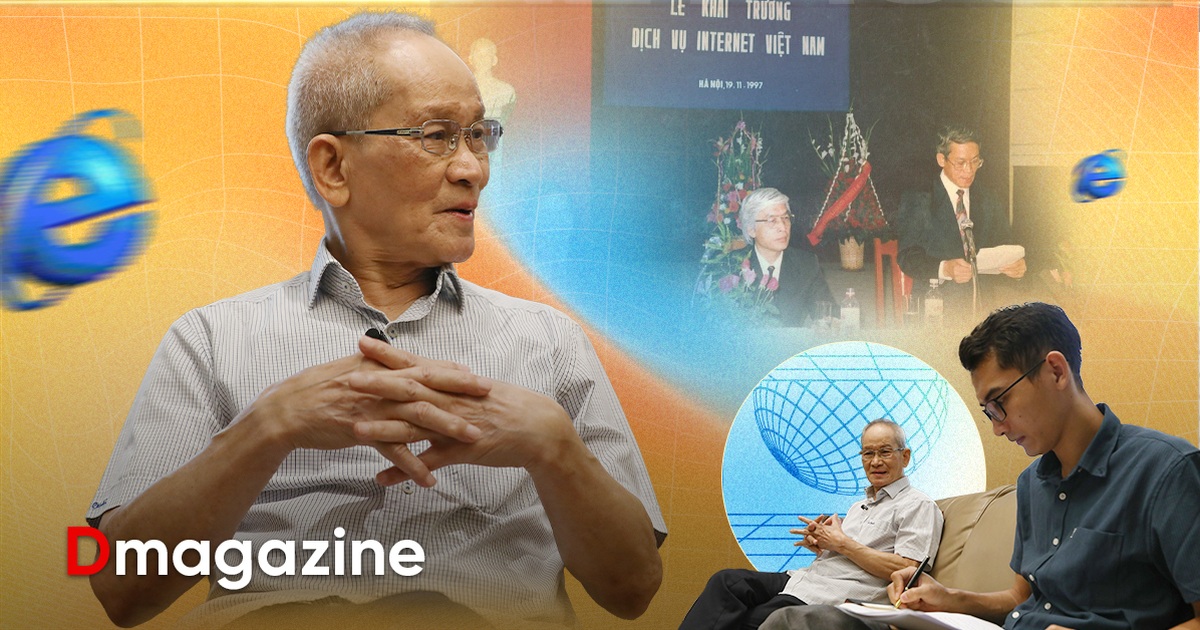









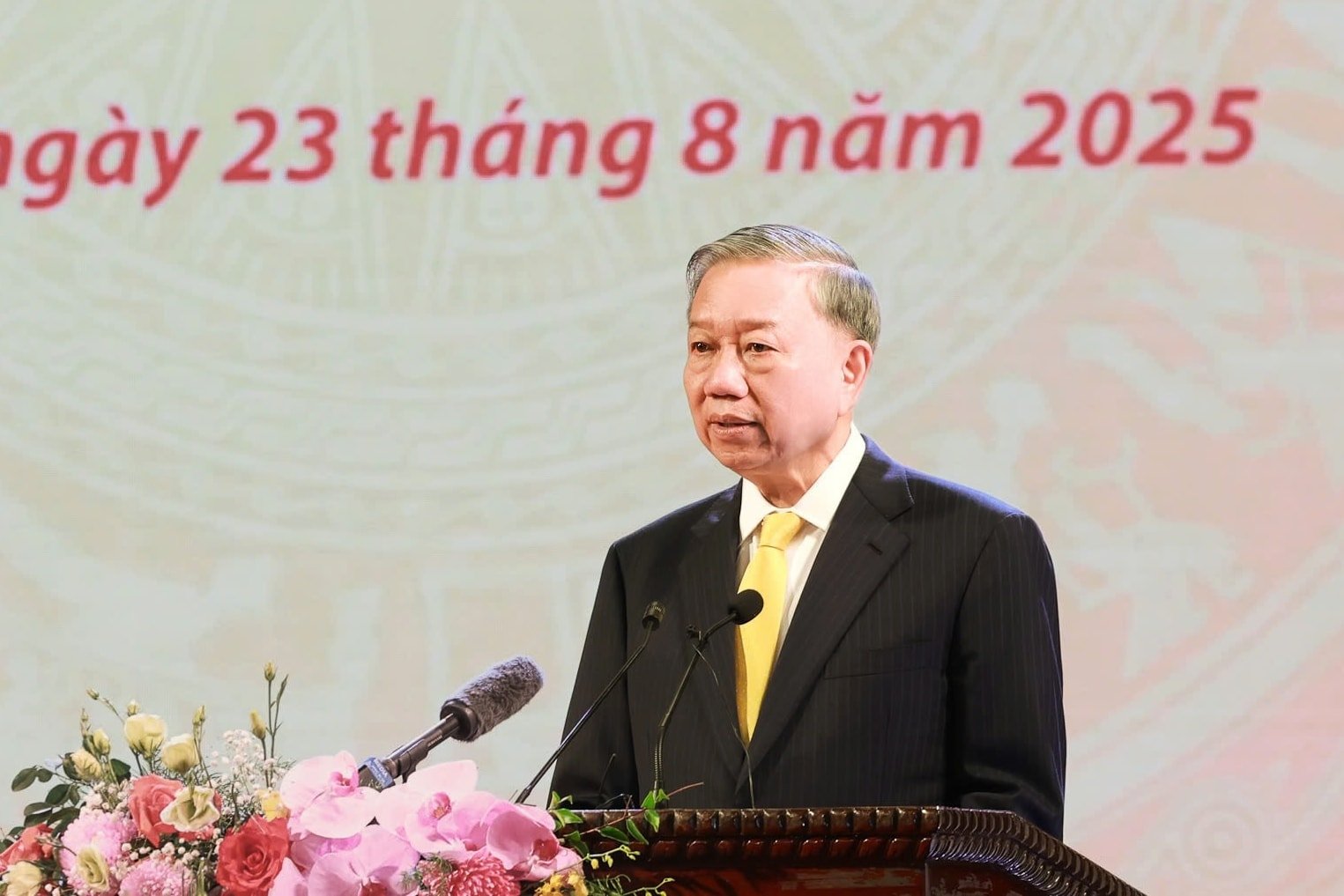







































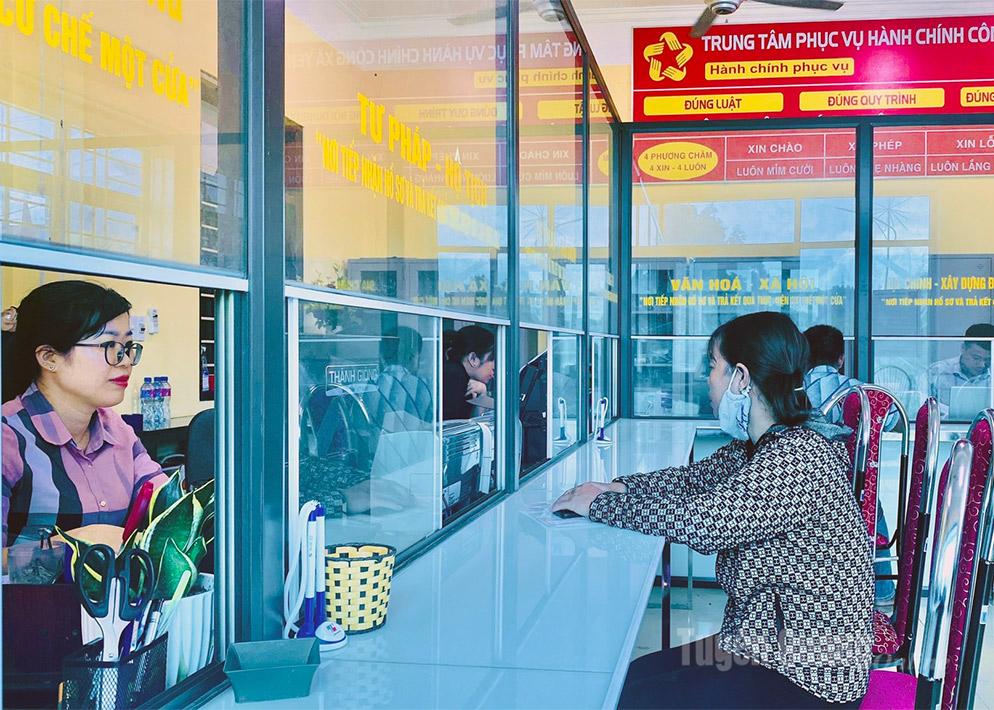

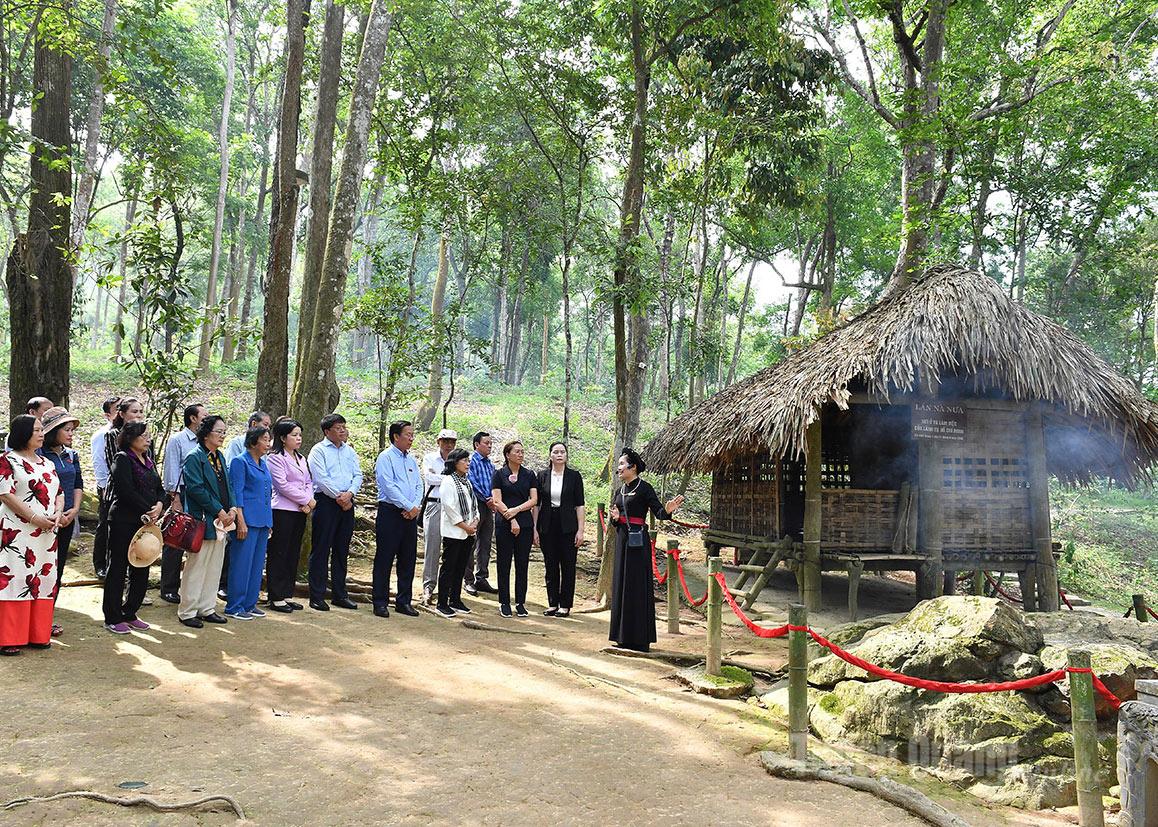
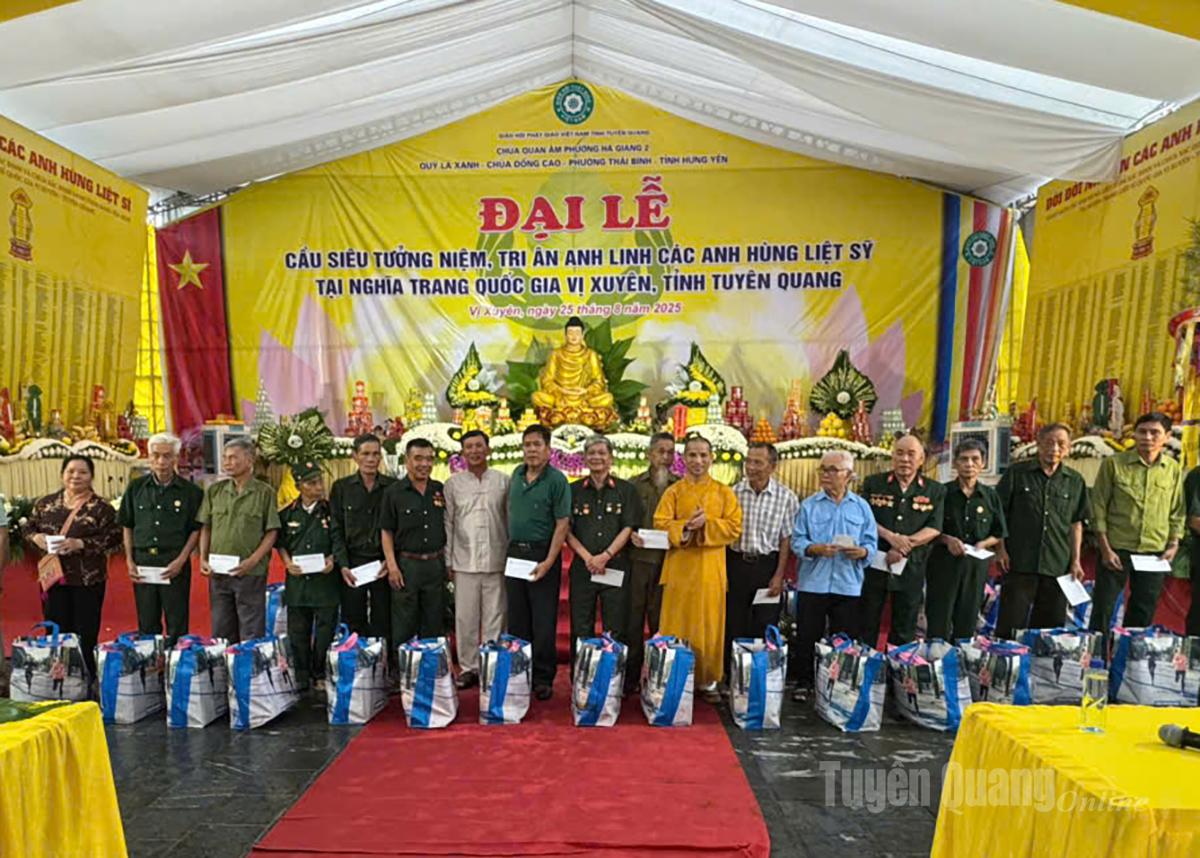
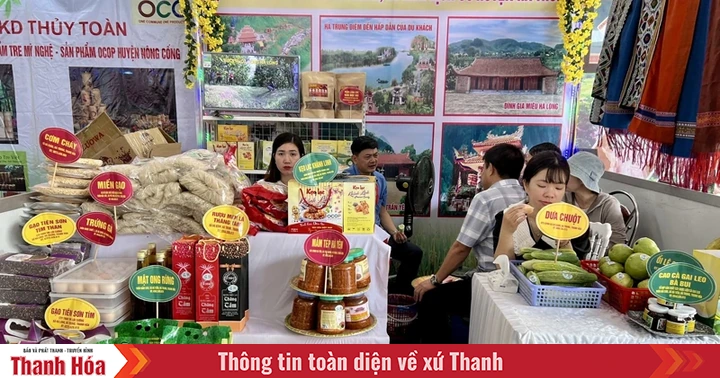

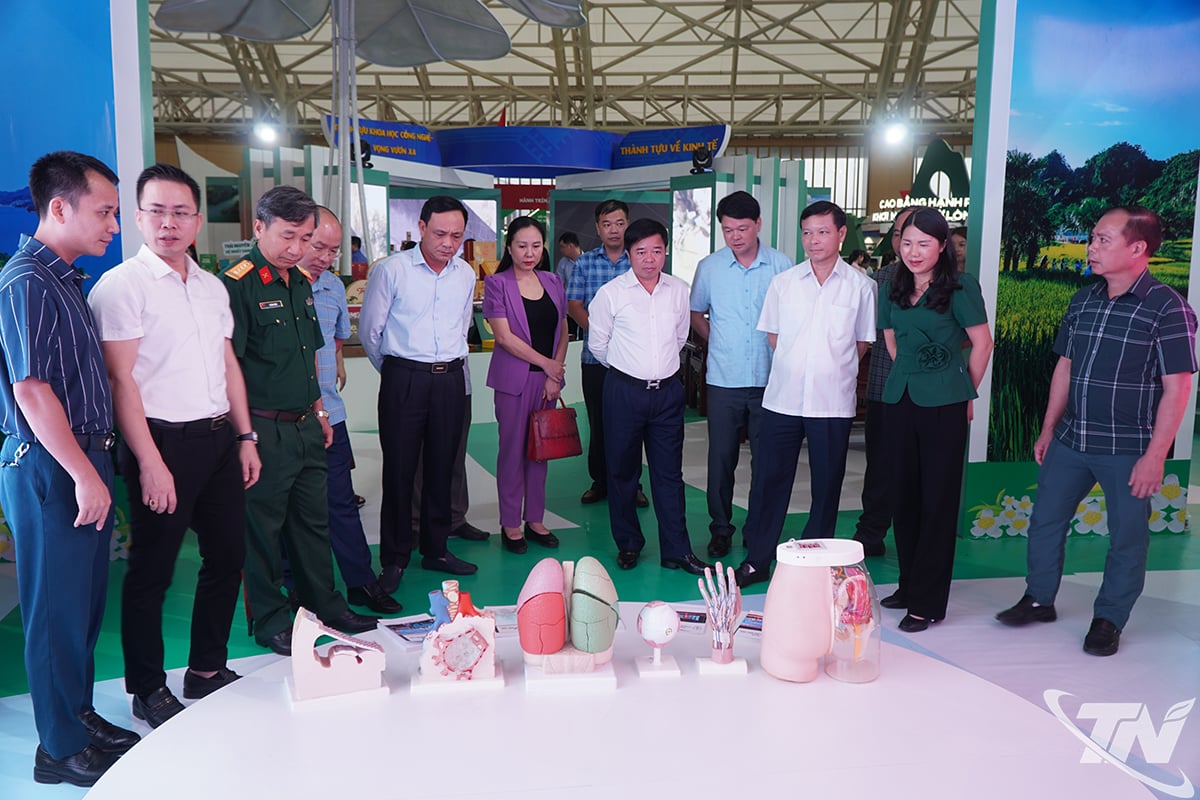

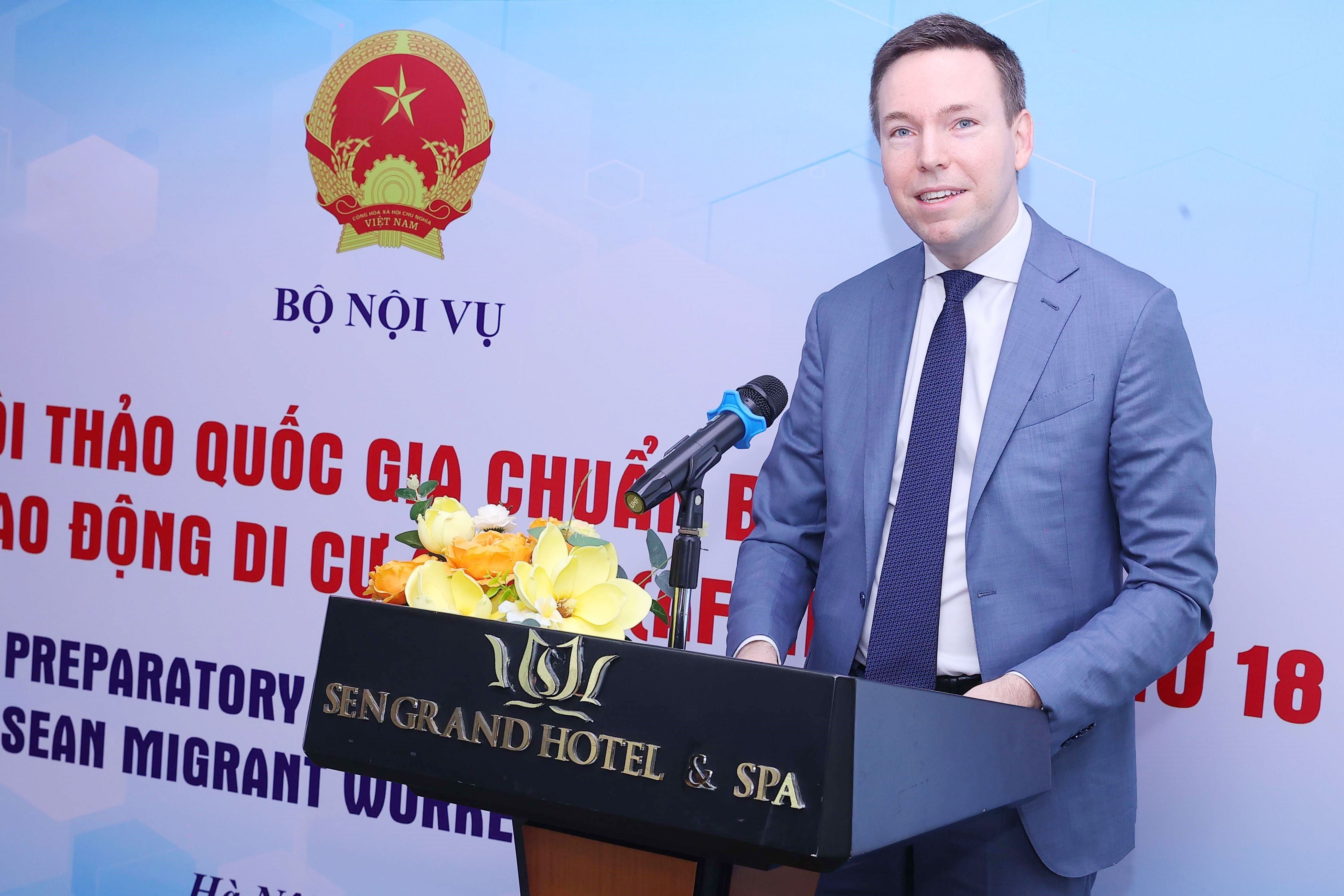
















Comment (0)